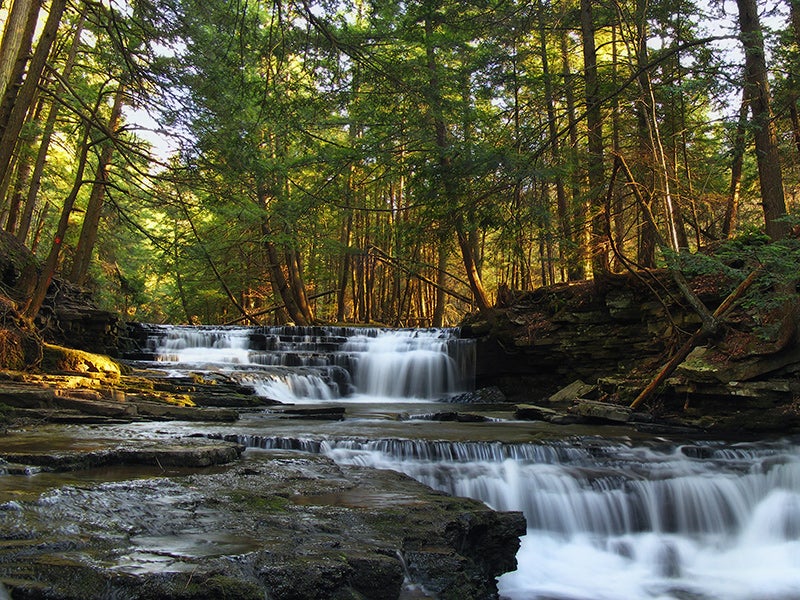Environmental Groups Challenge Federal Approval of N.Y. Natural Gas Pipeline
FERC violated federal law in issuing permits for the project earlier this month
Environmental groups today called on the federal government to reconsider its approval of a 124-mile natural gas pipeline and gas transmission system project that would run from northeastern Pennsylvania through four counties in upstate New York.
The groups say the Federal Energy Regulatory Commission (FERC) in approving the Constitution pipeline earlier this month failed to properly assess the environmental impact of the projects as required under the National Environmental Policy Act.
The pipeline project—planned by Constitution Pipeline Co. and Iroquois Gas Transmission System—would cut through Susquehanna County in Pennsylvania and Broome, Chenango, Delaware, and Schoharie counties in New York.
In their request for a rehearing, the groups said the pipeline project will require the clearing of hundreds of thousands of trees, the elimination of hundreds of acres of forest land while cutting through drinking water supply systems. The environmental damage will lead to increased stormwater runoff and weaken the area’s resilience to flooding amid increasing levels of rain and snow, the groups charge.
In addition to disturbing the natural habitat, the groups say the project would likely cause additional development of fracked gas wells, resulting in increased air, water, and land pollution; truck traffic; and light and noise pollution.
In June and July, the groups notified FERC that its February 2014 draft Environmental Impact Statement failed to follow federal law by basing its analysis on incomplete information and an inadequate assessment of water resources, forest ecosystems, air quality, and climate change. FERC, the groups say, corrected a limited number of the problems with its analysis but failed to engage in the robust analysis that is required under federal law before issuing a final environmental impact statement in October.
On Dec. 2, FERC issued permits for the projects despite the deficient analysis and the failure of the power companies to obtain many key permits, including a Section 401 Water Quality Certification from New York State, which is required under the Clean Water Act, the groups say.
"Our nation’s environmental and resource conservation laws exist for a very basic reason: to protect the quality of our air and water and our natural habitats and the health of our communities," said Earthjustice attorney Moneen Nasmith, who is representing the groups. "When the Federal Energy Regulatory Commission issues a permit for a natural gas pipeline without fully assessing the environmental impact as required, concerned citizens must take a stand.
It’s clear that this project would damage natural habitat, increase flooding and stormwater runoff, pose a risk to drinking water and induce more environmentally-damaging fracking and natural gas infrastructure development in the area," she said.
Andrew Mason, co-president, of Delaware-Otsego Audubon Society, which is being represented by Earthjustice, is particularly concerned about the impacts to wildlife.
"FERC has essentially ignored the impacts the pipeline will have on forest-dwelling birds in our region. Large swaths of mature forest will be fragmented by the right-of-way, leaving these at-risk species vulnerable to predation," said Mason.
The decision to grant the permit comes on the heels of New York Gov. Andrew Cuomo banning fracking in state of New York this month because of health concerns. In June, the New York state’s highest court decided in a landmark case that municipalities in the state have the right to ban fracking through local laws.
The groups, represented by Earthjustice, that are calling for a rehearing include: Catskill Mountainkeeper, Clean Air Council, Delaware-Otsego Audubon Society, Delaware Riverkeeper Network, Riverkeeper, Inc. and Sierra Club.

Additional Resources
About Earthjustice
Earthjustice is the premier nonprofit environmental law organization. We wield the power of law and the strength of partnership to protect people's health, to preserve magnificent places and wildlife, to advance clean energy, and to combat climate change. We are here because the earth needs a good lawyer.